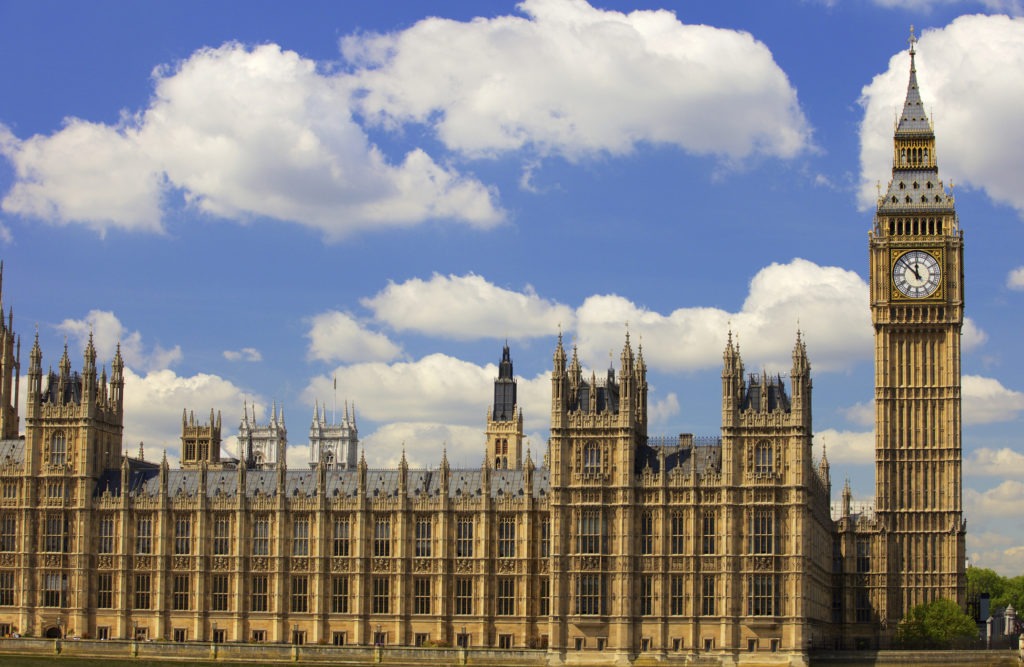UK General Election result raises calls for stability by automotive industry
09 June 2017

09 June 2017
The UK’s General Election has resulted in no political party having an overall majority, despite Prime Minister Theresa May having called the poll in order to strengthen her hand during Brexit negotiations. With her Conservative Party falling eight seats short of an overall majority, it is relying on the help of the Democratic Unionist Party of Northern Ireland to push through policies.
However, with Brexit talks between Britain and the European Union (EU) soon to begin, there are fears that the result will change the type of deal that was being put to the UK Parliament. The PM’s preference was for a ′hard Brexit’, whereby the UK would leave the Single Market and therefore remove itself from free movement of EU citizens, both areas that the country’s automotive industry was keen to retain in order to grow.
Carmakers are already understandably nervous about the situation, and how the UK’s exit from the EU will now be negotiated. Other political parties have a vote on any deal and without a commanding majority, they could derail negotiations.
UK-based Aston Martin has called on politicians to provide rapid reassurances to business so they can continue to invest. CEO Andy Palmer has commented: ′We cannot stress strongly enough the need for rapid and decisive policy direction to ensure that business can continue to invest for the long term growth and ensure the global competitiveness of the British economy.
′Clarity over our relationship with Europe must be established quickly together with the wider reassurance to our key trading partners that Britain remains a dynamic and thriving business environment.’
The SMMT has already called on UK Government to strengthen the automotive industry in the country post-Brexit. CEO Mike Hawes, speaking at the launch of the body’s Motor Industry Facts 2017, commented: ′We need to make sure we have no tariffs, no barriers, and no additional customs checks, all of which will add cost to the industry. If we were to revert to WTO there would be a significant cost attributed, around £1.8 billion (€2.1 billion) on exports, and £2.7 billion (€3.1 billion) on imports. That would translate to an increase in sticker price on a vehicle of around £1,500 (€1,700). When you consider that 80% of cars sold in the UK are imported, and therefore subject to the increase, it is easy to see who would bear the burden – the consumer.’
Speaking after the General Election result was announced, Hawes adds: ′It is important a government is established as quickly as possible to provide political and economic stability. UK Automotive is vitally important to the UK economy and jobs across the country and now more than ever we need strong engagement by government with the industry, both on the domestic agenda and in European negotiations, to secure future growth and investment in our sector. Collaboration with our industry is the key to securing a globally competitive business environment, an ambitious industrial strategy and a strong relationship with Europe and our trading partners across the world.’
PSA Group was one company that had been talking about building its operations in the UK should the country go for a hard Brexit. Speaking in March 2017, following his company’s acquisition of Opel from General Motors, chief executive Carlos Tavares said: ′A hard Brexit from UK plants will be a nice opportunity in terms of business. This is something that the UK government completely understands. If it is a hard Brexit, then the supplier base needs to be developed. [″¦] It is important that we source parts from the UK, so that the cost structure will be more in pounds.’
However, the election result has also triggered fluctuations in the UK economy, with the value of the pound dropping 1.7%. This may lead to car buyers waiting until the financial market becomes more stable, which may take some time once Brexit talks start. This will then increase the already expected decline in UK vehicle sales in 2017, which already fell by 8.5% in May.
The uncertainty also extends to who will be doing the negotiations, with suggestions in some UK media that the PM is under pressure to resign, possibly after the UK Parliament’s summer recess, although she has reiterated her intention to stay. With a visibly weaker position, the European Commission may take the chance to seize the initiative in talks and get what it wants when the UK leaves the union in 2019.
The EU is the UK’s biggest trade partner, with 50% of cars and 90% of commercial vehicles built in the country bought by drivers on the continent. The EU also represents 80% of the UK’s motor vehicle import volume, worth a total of €42 billion, seeing seven out of every ten cars sold in the country coming from EU plants. The balance of negotiations has shifted and it remains to be seen whether the UK automotive industry will benefit or suffer.
The insight behind the news
Never miss another story – sign up to receive your complimentary Autovista Group Daily Brief. This timely and incisive daily briefing covering automotive news and insights on the issues affecting your business is delivered direct to your inbox.